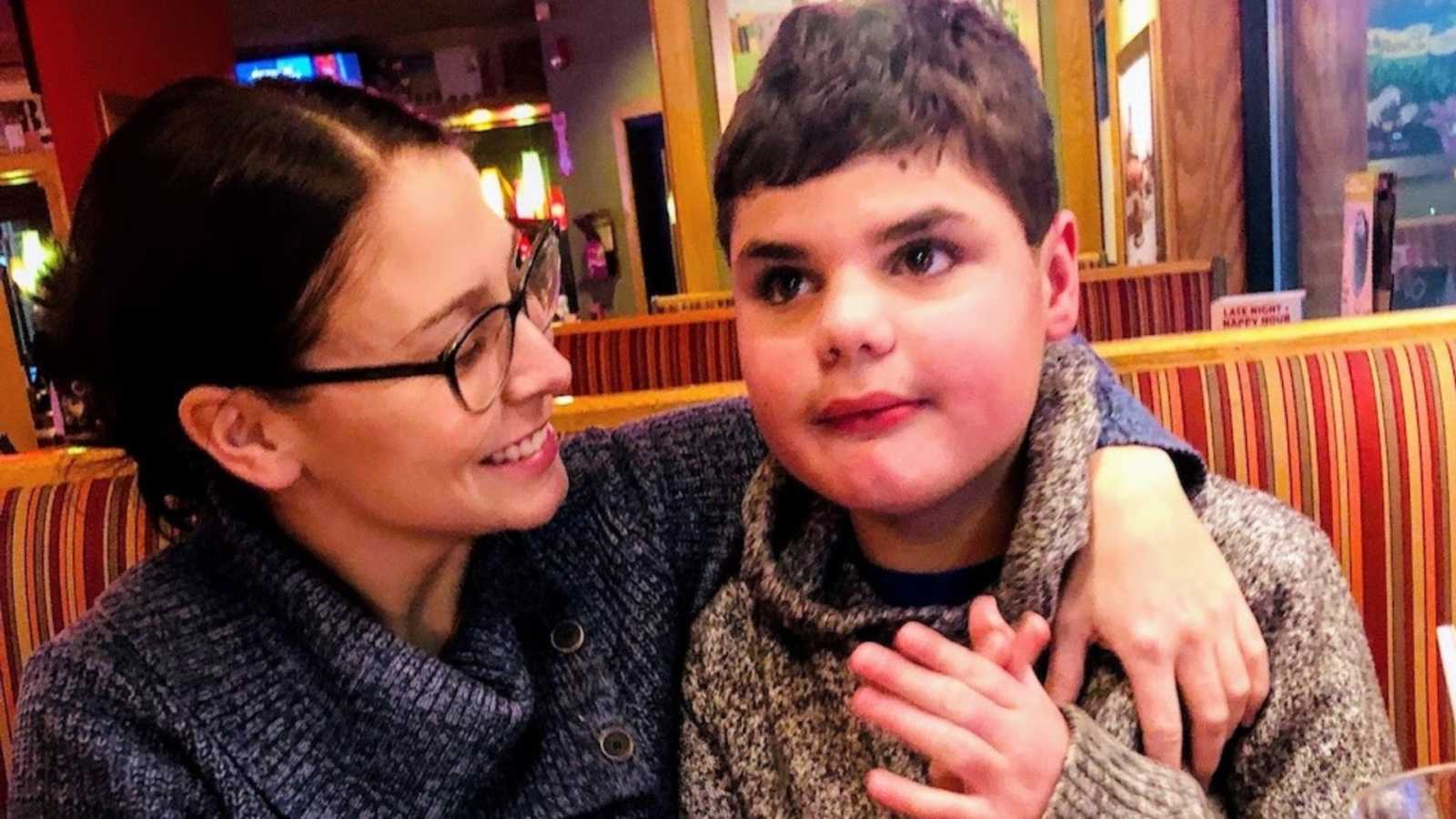Raising A Son With Autism
“Autism is a word describing millions of different people and millions of different journeys. My name is Amanda, and I am a single mother to an amazing 15-year-old boy named Ajay.
Ajay is funny, caring, sweet, loving, and busy; he loves to repeat the phrases ‘ready, set, go’ and ‘3, 2, 1, go.’ Ajay has autism and uses a combination of signs, gestures, vocal approximations, and his communication device to communicate.
When I first heard the word ‘autism’ as a parent, so many thoughts ran through my mind. Will he ever talk? Will he have friends? What will life look like for him?
Those thoughts ran through my mind daily for years—I was sad, upset, and a bit overwhelmed. As the years went by, Ajay began to exhibit some challenging behaviors, such as aggression, self-injury, bolting, and flopping to the ground.
These challenging behaviors created a barrier for us to engage in community events and outings. When Ajay exhibited these behaviors in the community, I felt isolated—people would stare at us and some even made rude comments.
I couldn’t understand why there was no kindness or compassion from community members, when it was very evident Ajay was having a hard time and not just acting out.
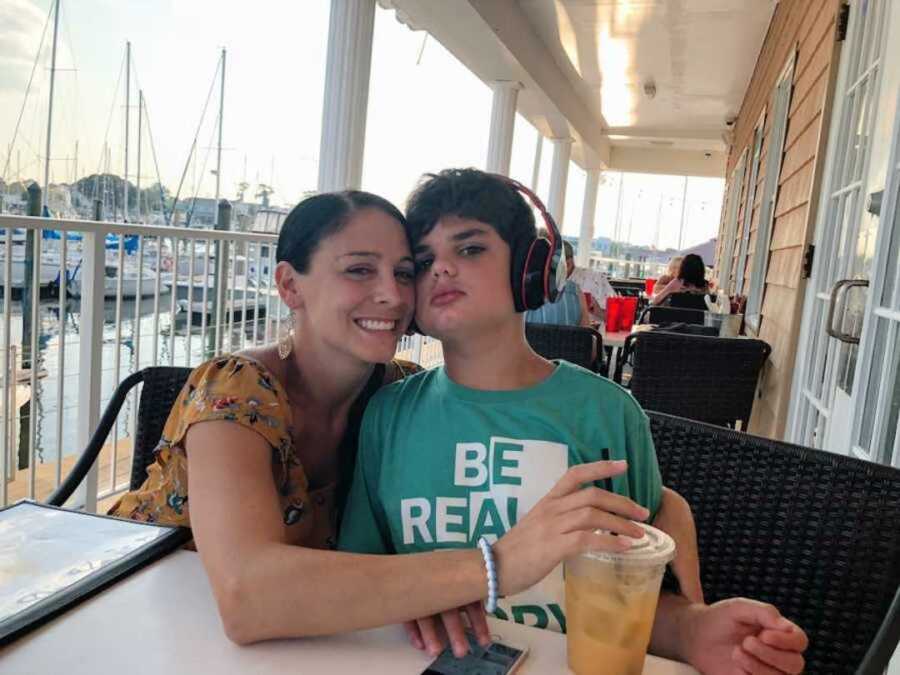
Overcoming Barriers & Setbacks
Over the past six years, I received amazing parent training, pursued a career in Applied Behavior Analysis to help support Ajay the best way I can, and worked with Ajay’s in-home therapist, Krysite, on community objectives to teach Ajay the skills he needs to be able to participate in community activities and outings.
Ajay participated in Challengers basketball and baseball, Topsoccer, Surfer’s healing, and A-skate over the years. Despite the challenging behavior which occurred during these events, we always just moved forward.
I was determined for Ajay to be part of social events—this was ‘our community,’ a large group of special needs parents and volunteers who created these inclusive programs. I am grateful for these programs, but there was still something missing: the acceptance and support from the broader community.
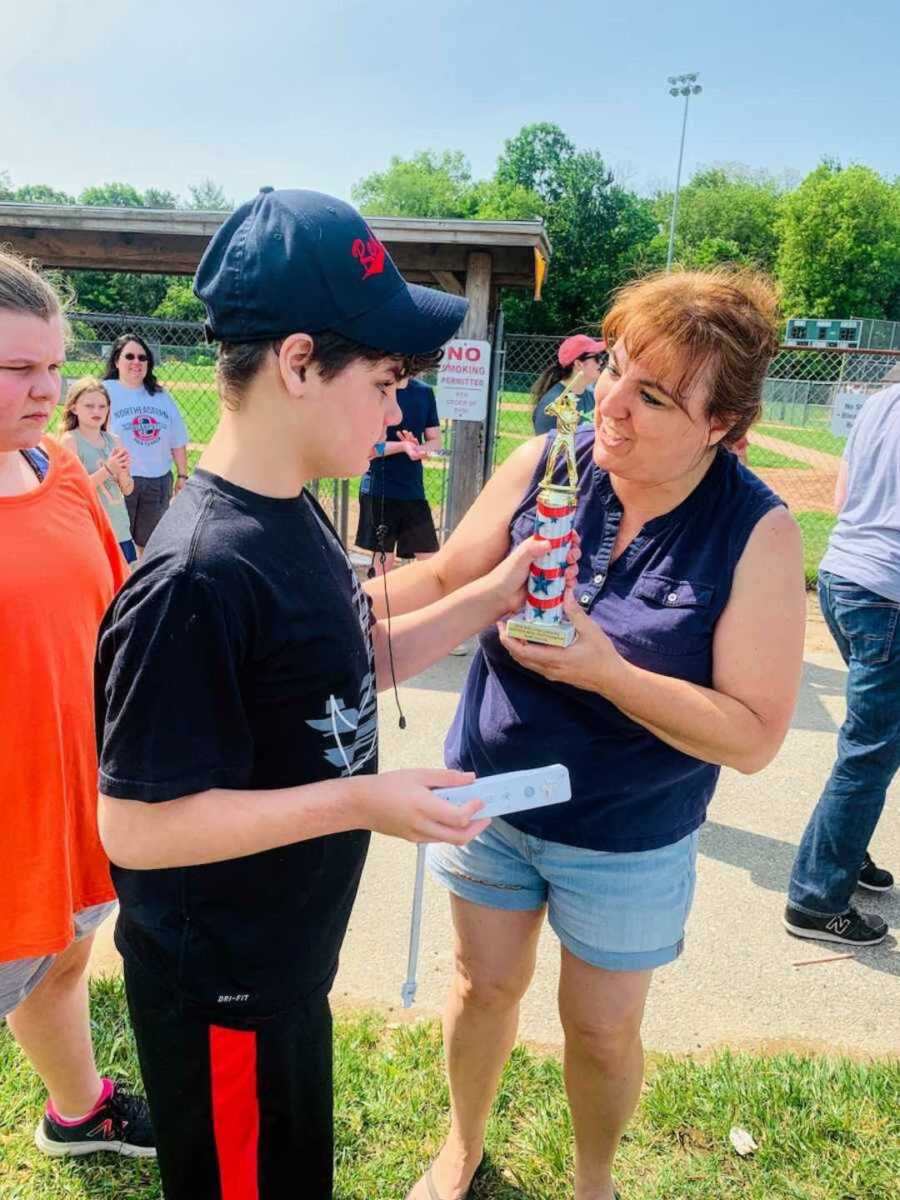
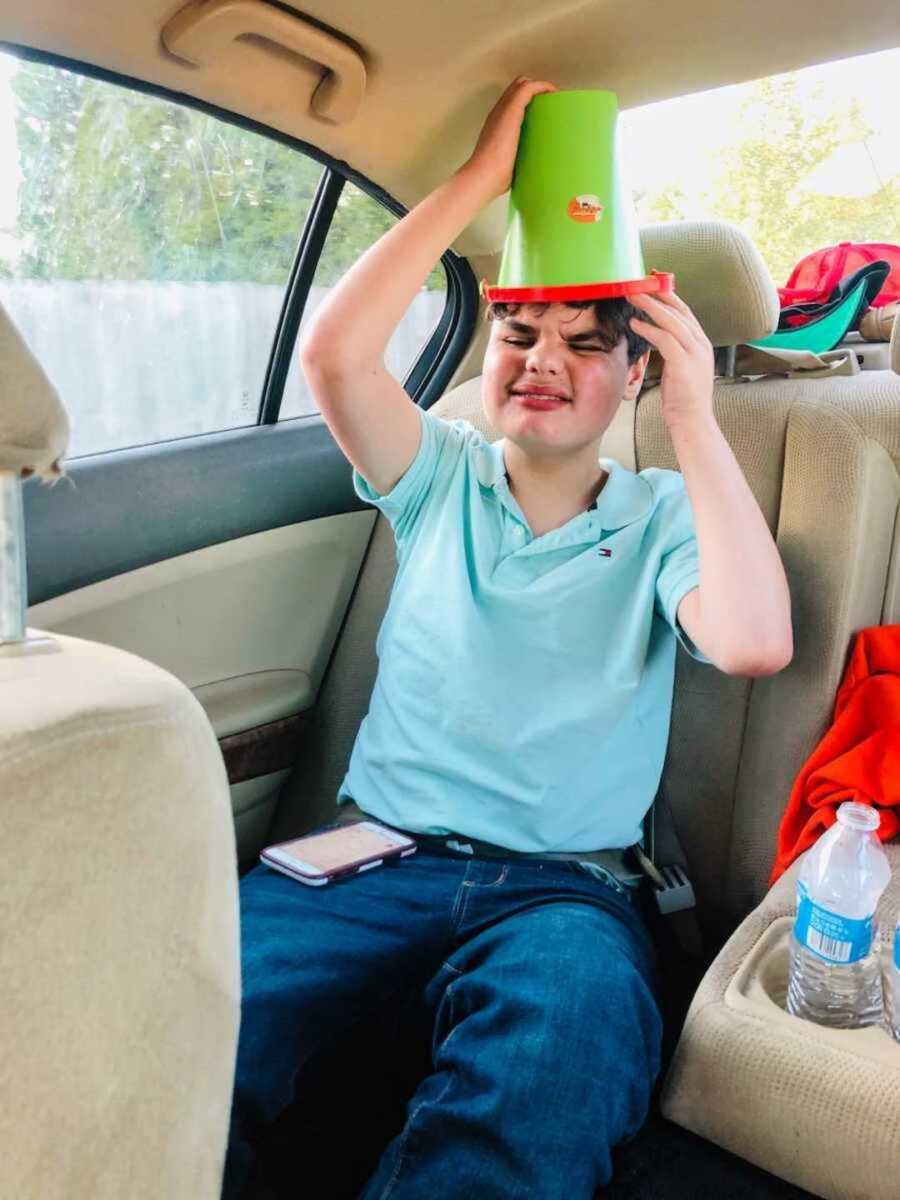
Rewind back to March of this year, before COVID. Ajay had the ability to go to stores such as Target, Walmart, Stop and Shop, and Kohl’s successfully. He was also able to go into a restaurant, sit down, order his food with his AAC device, wait for his food, and eat his food without engaging in any challenging behaviors.
This was a huge accomplishment for Ajay! I was so proud of him. Then COVID happened.
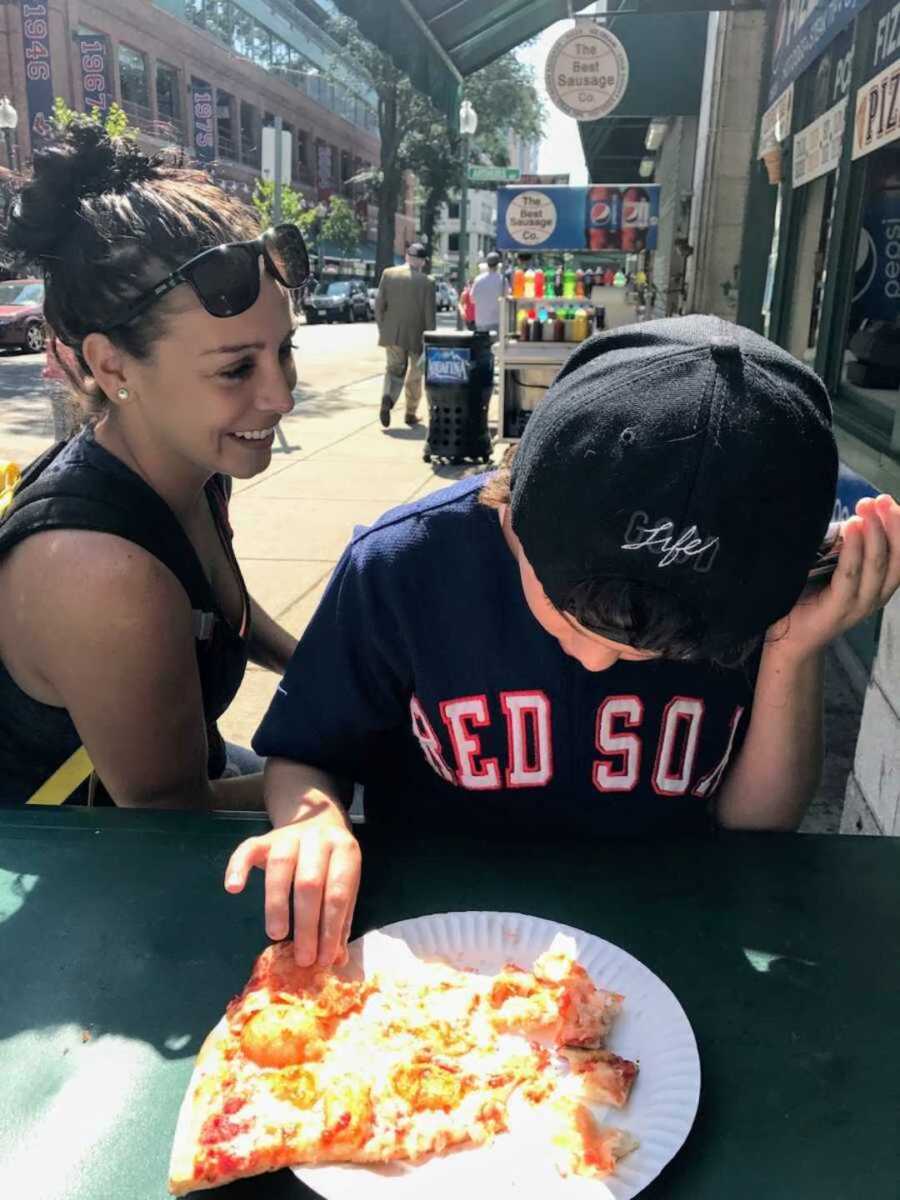
Unexpected Kindness
On December 11, 2020, I had two staff at the house with me. I made a decision to take Ajay out to eat for the first time in nine months. We went to the Beef Barn Restaurant in Bellingham, Massachusetts.
We walked into the restaurant and I could immediately tell Ajay was anxious. We sat down and he asked ‘to use the bathroom,’ which usually means he wanted to go walk around the restaurant.
Ajay began having a hard time, which resulted in him pulling my hair, biting me, screaming, standing on the bench, and flopping to the ground. After managing the challenging behavior, I had Ajay sit down with a calm body and request to be ‘all done,’ which he did with his AAC device, and we began to walk out.
I noticed people looking at us and began to feel the same feelings I had felt so long ago.
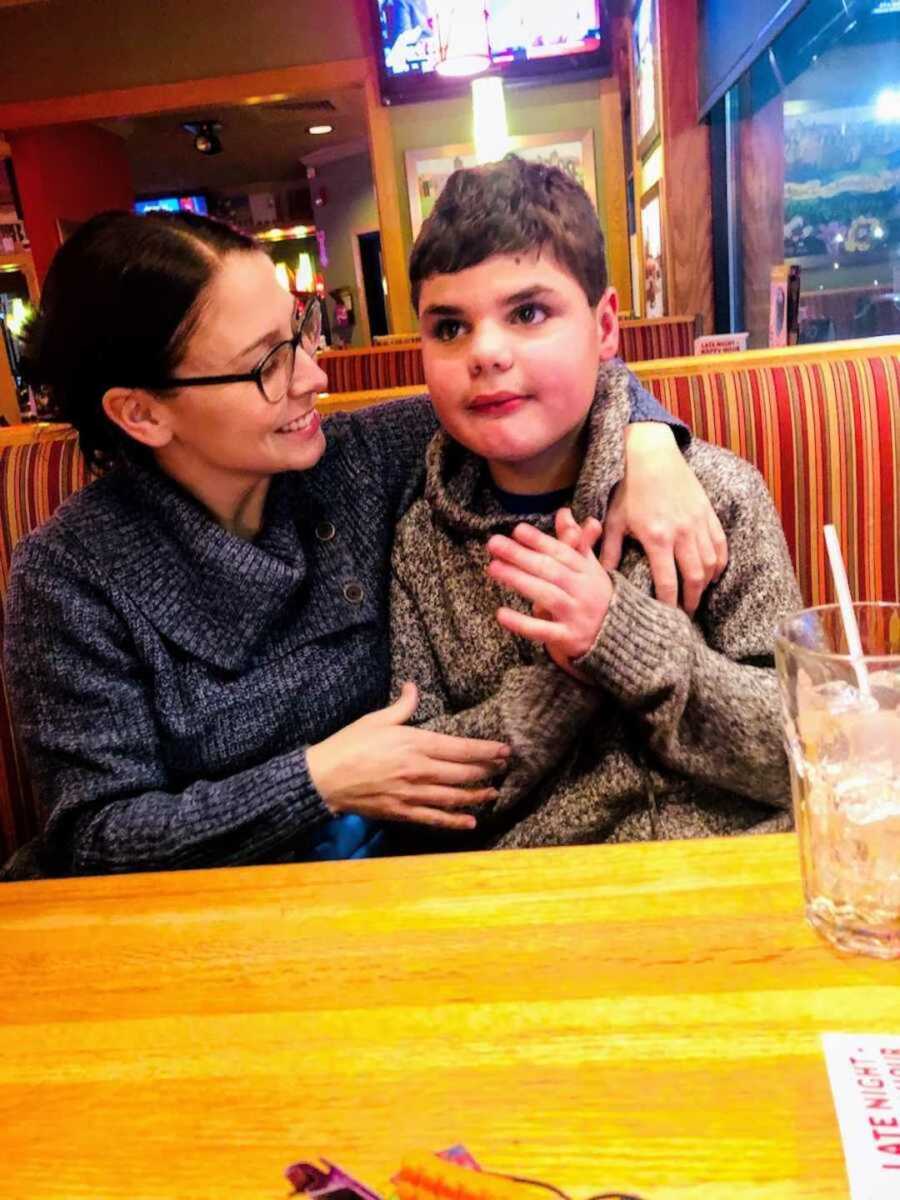
Near the exit, Ajay flopped to the ground again. I once again managed this and we walked out to the car. While I was managing the challenging behavior, Ajay’s teacher was packing up the food inside for us so we would still eat when we got home.
His teacher, Holly, came out to the car and told me, ‘I tried to pay for the food. They told me it was all set, and you didn’t have to leave. They hope you come back, and they want Ajay to feel comfortable there.’
Honestly, I didn’t respond right away because I was in such disbelief of what she was telling me. When I finally processed it, I was so touched by the compassion.
When I got home, I called the manager to express my gratitude for their kindness and compassion, and explained Ajay is working on the skill of being able to eat in a restaurant. I explained this was our first time since COVID he’d been to a restaurant, and his response was, ‘Well, I think he did a great job then!’
He told me the same thing he told Ajay’s teacher: ‘You guys didn’t have to leave, we hope you’ll come back, and we want him to feel comfortable here.’ We hung up the phone, and not four minutes later, I had a missed call with a voicemail: ‘We have a private room you could use if you think he’d be more comfortable there.’
Thank you to the employees of the Beef Barn Restaurant. For your kindness, compassion, and willingness to support and include ALL members of the community.
Autism is different for everyone—it can feel isolating. Community support and inclusion is vital, not only to the individual but to the entire family. There is not enough inclusive community support for those who are impacted by autism.
This is a perfect example of how to support families of those who need a little extra support to be part of their community. I am forever grateful for those who stand in the gap.”
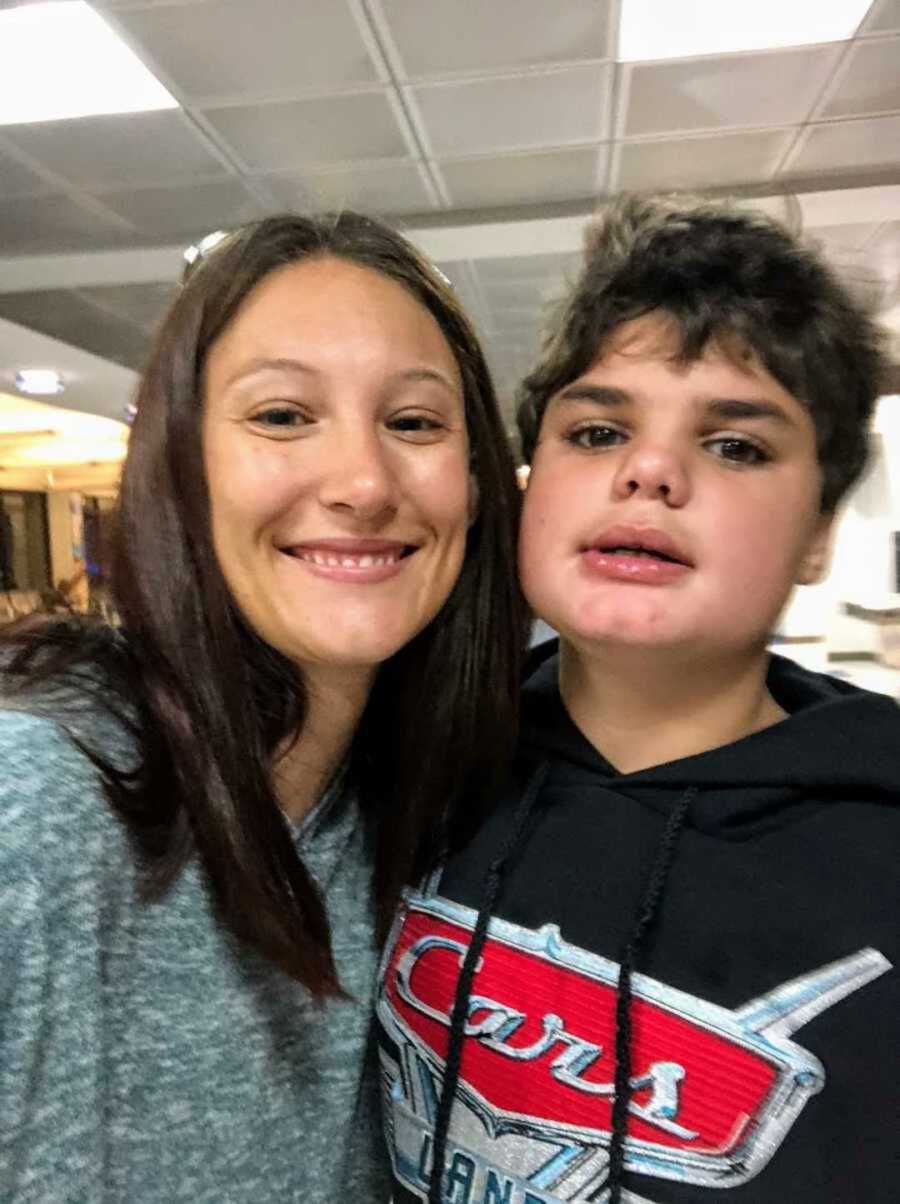
This story was submitted to Love What Matters by Amanda Lussier of Blackstone, Massachusetts. Be sure to subscribe to our free email newsletter for our best stories.
Read more about autism:
Give other parents strength and courage who are continuing to learn about their children with autism. SHARE this story on Facebook or Twitter.

